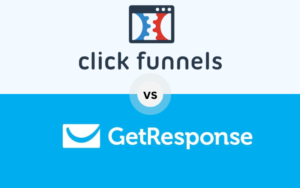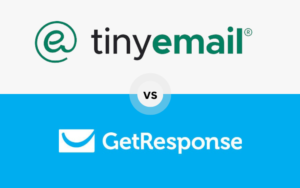Clingy email marketing, characterized by excessive, intrusive, and relentless email campaigns, often does more harm than good to businesses’ reputations and customer relationships. In the ever-evolving landscape of digital marketing, email marketing remains a cornerstone strategy for businesses seeking to engage with their audience. However, amidst the quest for customer attention and retention, some businesses fall into the trap of what can be termed as “clingy email marketing.” This approach, characterized by excessive, intrusive, and relentless email campaigns, often does more harm than good. This comprehensive analysis delves into the detrimental impacts of clingy email marketing on business reputation and customer relationships.
Table of Contents
Understanding Clingy Email Marketing:

Clingy email marketing refers to the practice of bombarding subscribers with an overwhelming number of emails, often irrelevant or redundant, in an attempt to compel action or maintain constant contact. While the intention may be to stay top-of-mind, the execution frequently leads to annoyance, frustration, and ultimately, disengagement.
- The Deluge of Emails:
One of the hallmarks of clingy email marketing is the incessant flood of messages inundating subscribers’ inboxes. Whether it’s daily, multiple times a day, or even hourly, businesses employing this strategy risk overwhelming recipients, leading to email fatigue and, eventually, unsubscribes.
- Lack of Personalization:
Clingy email marketing often neglects the importance of personalization. Instead of tailoring content to individual preferences and behaviors, these campaigns rely on generic, mass-produced messages that fail to resonate with recipients. Consequently, subscribers feel undervalued and are more likely to disregard or delete emails without consideration.
- Ignoring Opt-In Preferences:
Respect for subscribers’ preferences is paramount in email marketing. However, clingy email tactics often disregard opt-in frequency settings or ignore unsubscribe requests altogether. This blatant disregard for user autonomy not only damages trust but also violates regulatory requirements, such as the CAN-SPAM Act in the United States and GDPR in the European Union.
Clickfunnels The best choice for success
The Impact on Business Reputation:
Clingy email marketing tactics can have far-reaching consequences for a business’s reputation, tarnishing its brand image and eroding customer trust in several ways:
- Perception of Desperation:
Businesses that resort to clingy email marketing may be perceived as desperate or unprofessional. Instead of fostering a sense of credibility and reliability, the relentless pursuit of customer attention can signal a lack of confidence in the quality of products or services offered.
- Damage to Brand Equity:
Brand equity, built over time through positive interactions and experiences, can be swiftly eroded by intrusive marketing practices. Clingy email campaigns risk alienating loyal customers who may associate the brand with annoyance and spam, leading to a decline in brand loyalty and advocacy.
- Negative Word-of-Mouth:
Unsolicited and excessive emails are unlikely to garner positive word-of-mouth recommendations. On the contrary, disgruntled recipients are more inclined to share their negative experiences with friends, family, and online communities, amplifying the damage to the brand’s reputation.
- Increased Churn Rate:
High unsubscribe rates are a telltale sign of ineffective email marketing strategies. Clingy email practices accelerate customer churn as subscribers opt-out to escape the barrage of unwanted messages. The loss of subscribers not only impacts immediate revenue but also diminishes the potential for future engagement and conversions.
The Long-Term Effects on Customer Relationships:
Beyond the immediate repercussions on brand reputation, clingy email marketing can strain long-term relationships with customers, undermining trust and loyalty in the following ways:
- Erosion of Trust:
Trust forms the foundation of any successful customer relationship. Clingy email tactics breach this trust by disregarding boundaries and bombarding recipients with unwanted solicitations. Once trust is compromised, rebuilding it becomes a formidable challenge for businesses.
- Decline in Engagement:
Rather than fostering meaningful engagement, clingy email marketing breeds apathy and disinterest among recipients. When inundated with an overwhelming volume of emails, subscribers are less likely to open, read, or act upon messages, diminishing the effectiveness of future communication efforts.
- Loss of Customer Lifetime Value:
Customer lifetime value (CLV) is a key metric for assessing the long-term profitability of customer relationships. Clingy email marketing accelerates CLV erosion as disgruntled customers defect to competitors or disengage entirely, depriving businesses of recurring revenue opportunities.
Mitigating the Risks of Clingy Email Marketing:
To safeguard business reputation and nurture positive customer relationships, marketers must adopt a more strategic and customer-centric approach to email marketing:
- Respect Subscriber Preferences:
Prioritize subscriber preferences by allowing users to control the frequency and content of emails they receive. Empowering subscribers with choice demonstrates respect for their autonomy and fosters a sense of trust and goodwill towards the brand.
- Focus on Relevance and Personalization:
Tailor email content to individual preferences and behaviors to enhance relevance and resonance. Leveraging data analytics and segmentation techniques enables marketers to deliver targeted messages that address the unique needs and interests of recipients.
- Maintain Transparency and Compliance:
Adhere to regulatory requirements and industry best practices to ensure transparency and compliance in email marketing efforts. Clearly communicate the purpose of emails, provide easily accessible unsubscribe options, and honor opt-out requests promptly to build trust and credibility with subscribers.
- Monitor and Adapt:
Regularly monitor key performance indicators (KPIs) such as open rates, click-through rates, and unsubscribe rates to gauge the effectiveness of email campaigns. Use insights gleaned from data analysis to refine targeting strategies, optimize content, and improve overall campaign performance over time.
Conclusion:
Clingy email marketing poses significant risks to business reputation and customer relationships, undermining trust, loyalty, and engagement in the process. By prioritizing relevance, personalization, and respect for subscriber preferences, businesses can mitigate these risks and cultivate positive brand perceptions that foster long-term customer loyalty and advocacy. In an era defined by heightened consumer expectations and evolving regulatory landscapes, the imperative for ethical and customer-centric email marketing practices has never been greater. Let us embrace this opportunity to redefine email marketing as a value-driven conduit for meaningful customer engagement and relationship-building.





